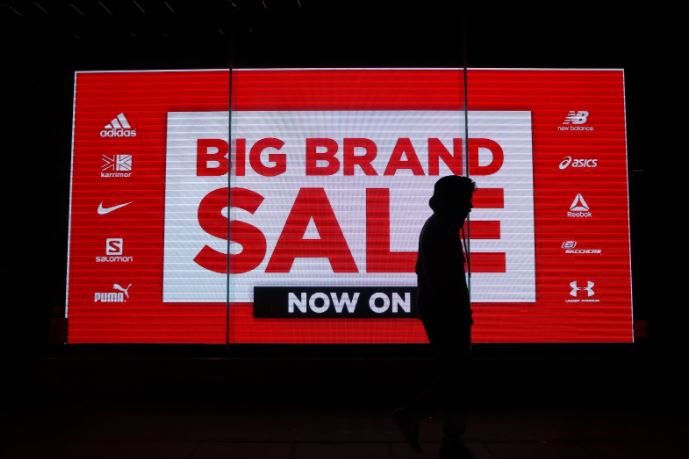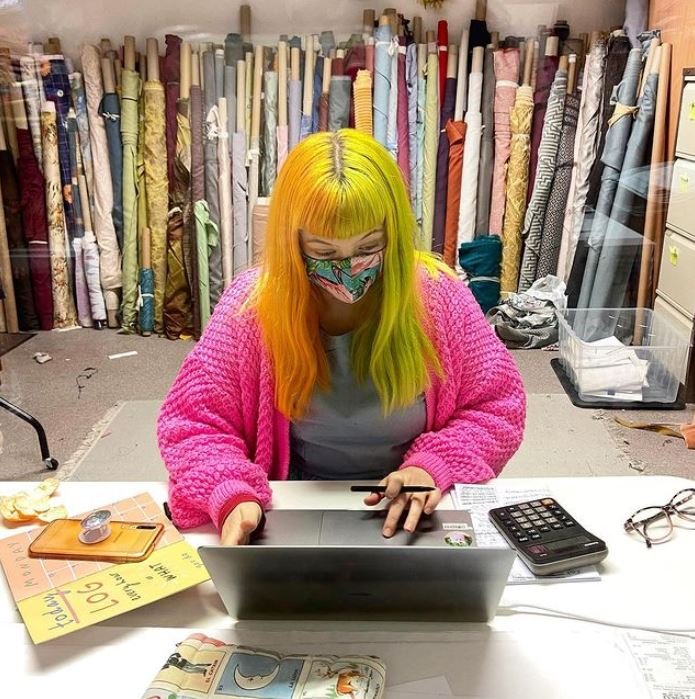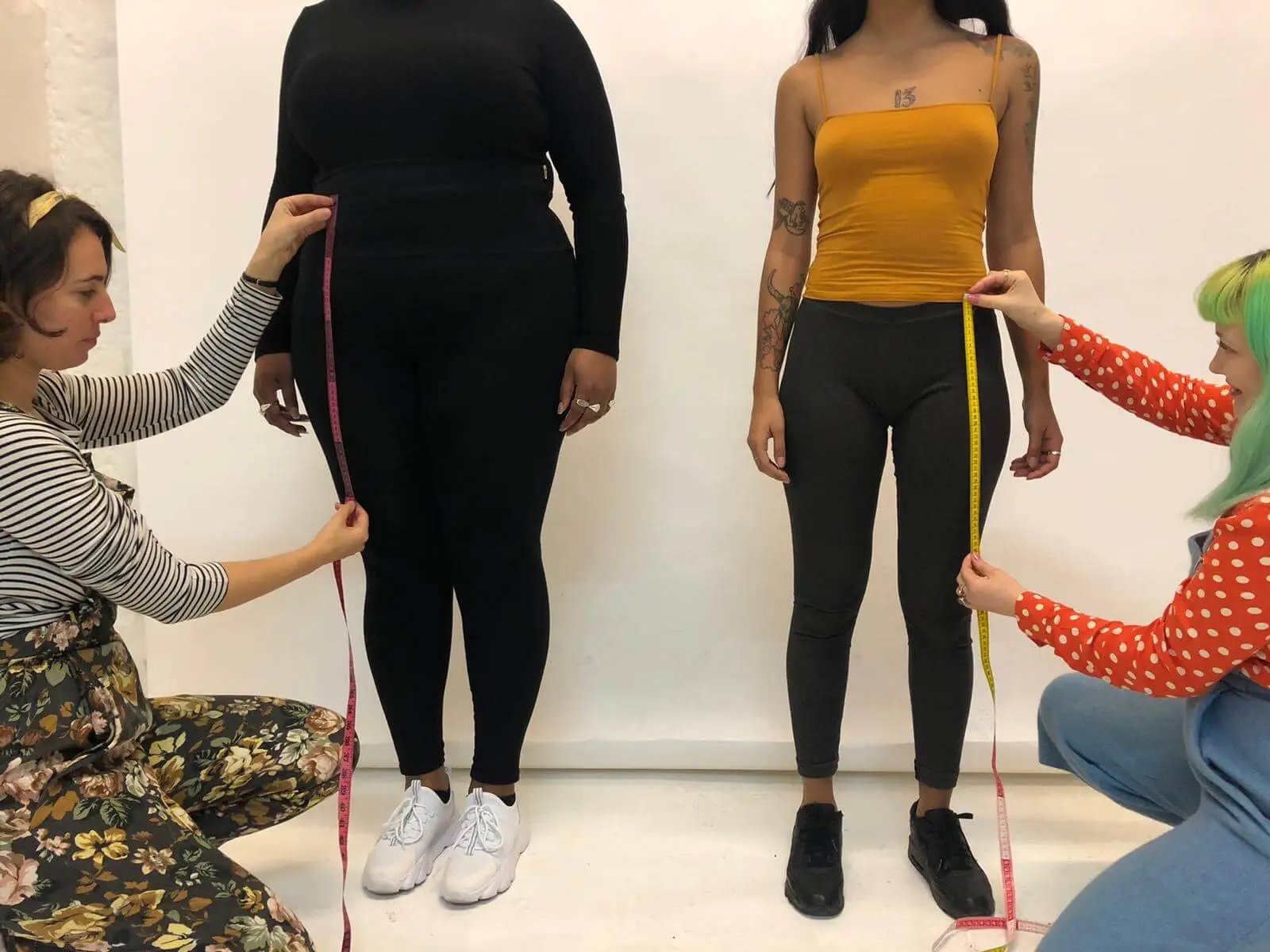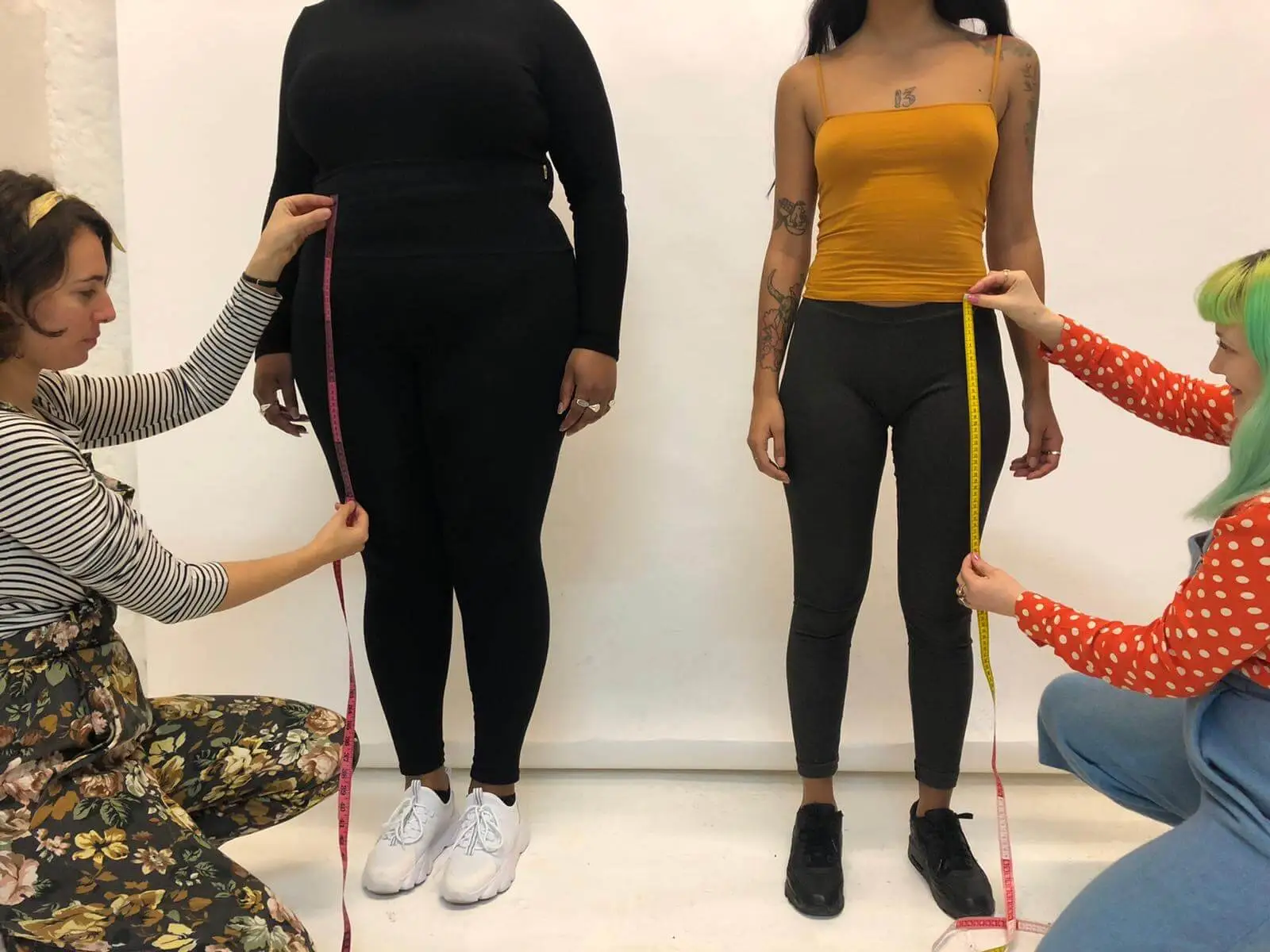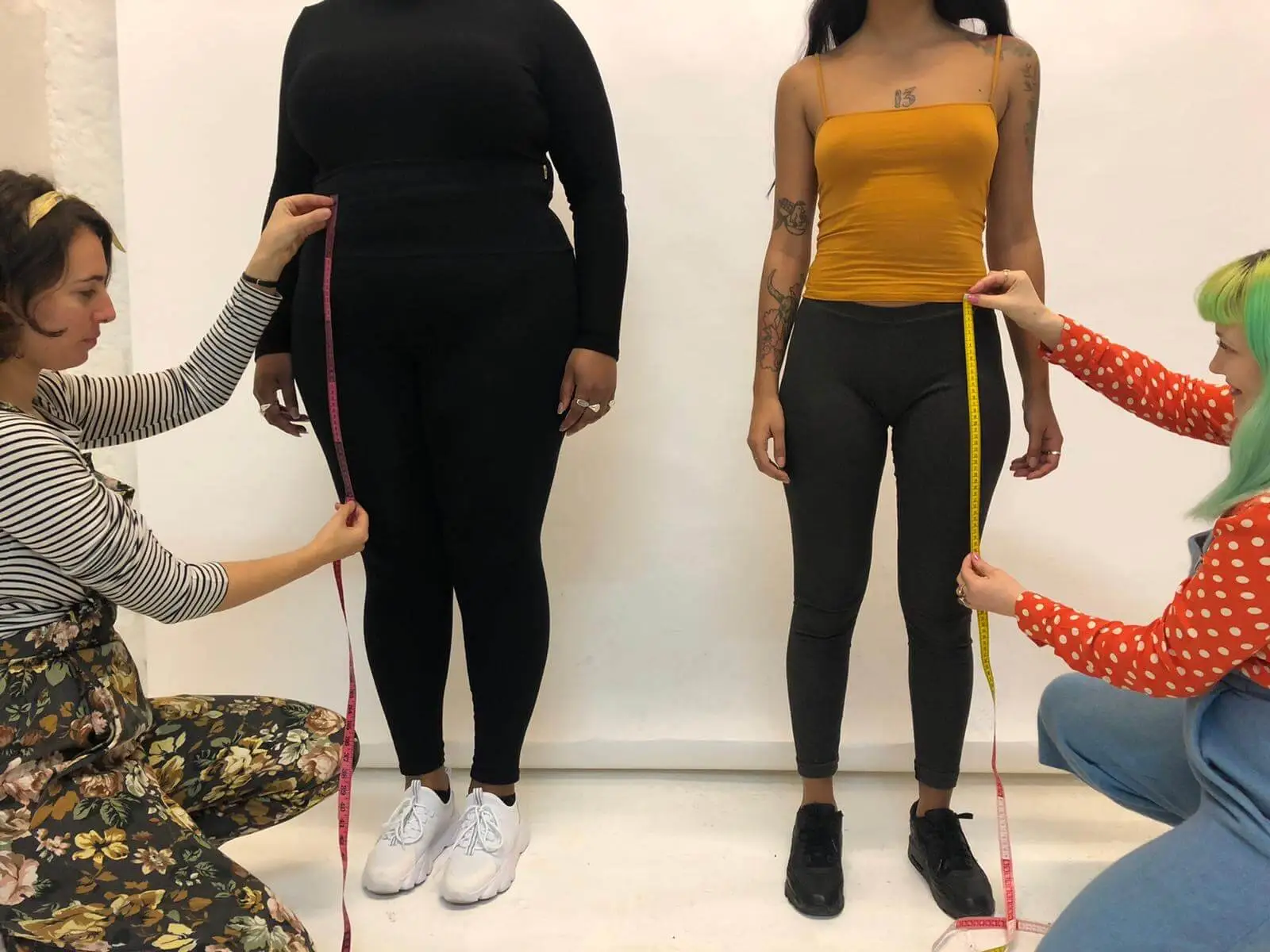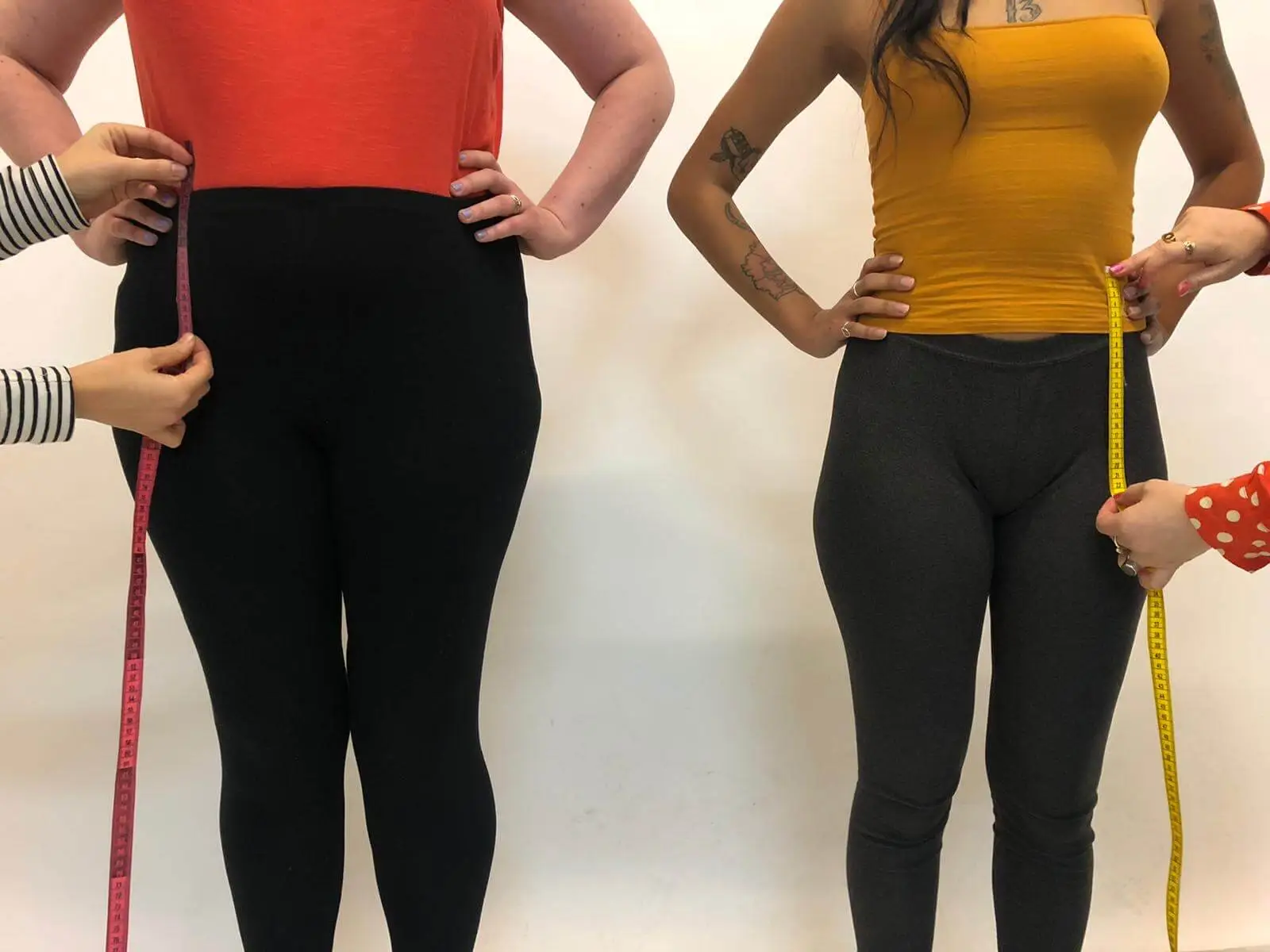SUSTAINABILITY & SMALL BUSINESS BLOG
Fashion in the Pandemic
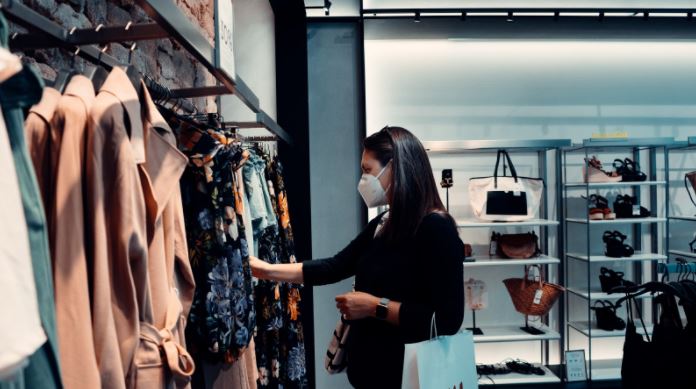
FASHION IN THE PANDEMIC
The COVID-19 pandemic has swept across the globe causing disruption among individuals, whole industries and businesses with devastating death tolls and restrictions bringing many people’s way of life to a standstill. Standing as one of the largest contributors to the global economy, the fashion industry has seen enormous losses for employees and business owners, big and small. Since early 2020, we have witnessed the inevitable increase of online shopping during lockdown periods, brick-and-mortar stores closing their doors whilst small businesses, once again, fighting for survival against big brands in addition to the added pressures that the virus has brought with it.
Whilst the pandemic has brought about some small victories such as the rise in second-hand shopping and large fashion houses lending factory spaces for the production of sanitisers, there have been some pretty ugly turnouts.
This unsettling time, if anything, has highlighted the corrupt decisions made by authoritative figures and CEOs of large fashion companies. Take, for example, the treatment of garment workers, not just in general but particularly during the emergence of COVID-19 in countries such as Bangladesh, Cambodia and Vietnam. Those that work in the production lines are not only losing their jobs but are being denied compensation by authorities further up the supply chain due to the cancellations of orders that were completed before the repercussions of the pandemic hit.

HUMANITARIAN CRISIS IN BANGLADESH
Bangladesh is facing a humanitarian crisis as a direct result of the pandemic with factory owners having to surrender because of the unfair obligations of fashion companies in the west. This in turn has had a devastating effect on the 4.1 million garment workers in Bangladesh that work under the power of fast fashion giants.
An online article by Forbes reports that fashion companies have cancelled around £2.26 billion of orders from Bangladeshi suppliers leaving 1.2 million of these garment workers at risk of becoming unemployed. Already garment workers live in a compromised society in which a regular wage is barely enough to feed and house their families, nevermind pay medical bills for treatment of an illness such as coronavirus.
Bangladeshi garment manufacturer Mostafiz Uddin reminds us, “Poverty is a killer too, and many more people die from poverty than from COVID-19.” Business of Fashion
According to a survey conducted by the Center for Global Workers’ Rights, 72.4% of factory owners said that even those who were temporarily unable to work wouldn’t get furlough pay and 80% of owners said ‘those that lost jobs due to order cancellations would not receive any financial support’.
What has been done?
The #PayUp campaign works to expose brands for collectively refusing to pay the $16 billion worth of cancelled orders since the COVID-19 pandemic occurred, holding them to account for denying workers from being paid what they deserve when they need it the most.
Since then companies such as Asda (Walmart), Next, Inditex (Zara), H&M have pledged to cover the majority or just half of the existing contracts of suppliers. Whereas Arcadia and Primark remain indifferent to the consequences that the employees face as an outcome of this decision, leaving millions of workers without pay. Additionally, these fast-fashion giants are brushing aside the reality of what is going to happen to this excess stock, once destined for the shop floor but no doubt will end up in landfill.
How you can help
When you’re faced with these facts, it can induce a sense of helplessness especially from where you may be sitting. However there are some great resources and ways in which you can take action, sign petitions or even donate (if you have the means to do so) to protect garment workers. Here are just a few suggestions:
Labour Behind the Label: The online site is super informative with direct links to ways in which you can sign petitions or donate to campaign for garment workers’ rights. The ‘Take Action’ section of the website has several options for you to support garment workers during the COVID-19 pandemic.
After the Rana Plaza factory collapse in 2014, LBL and Unison partnered up to create the Bangladesh Solidarity Fund which informs you of ways you can show up for garment workers in Bangladesh particularly needed at this time.
Fashion Revolution: FR has a great page on how to aid garment workers with straight forwards links from sending an email, donating directly or simply spreading the word.
IMPACT ON LARGE SCALE COMPANIES
In the UK, the decrease in footfall due to lockdown restrictions has had fast fashion brands grappling with swamped inventories and closure of retail stores. During a time when people are swapping their power suits for elasticated waistbands to ensure maximum comfort when working from home, the demand for fashion has changed dramatically and the need for new outfits has dropped drastically.
A company that struggled to overcome this change was Arcadia’s Topshop which has been spiralling for several years with the strike of the pandemic being the last straw, putting 13,000 jobs at risk.
There has been a lot of interest surrounding which company will reclaim Topshop such as Next, Primark M&S, with Boohoo predicted to win the bid for the popular high street store. However from the 1st February it was announced that ASOS had taken ownership of Topshop as well as several other brands in a £295 million deal.
Arcadia is not the only high street brand that is struggling to survive the difficult times with many high street brands battling with online retailers competing for the market. Following the first lockdown in March 2020, Primark was expected to lose more than £1bn during the first half of its financial year, showing that operating online is almost a necessity in retail for this age.
At a time when the majority of the fashion industry is in decline, Boohoo continues to grow their empire after claiming Oasis and Warehouse in the summer and trumping competitors in online sales. During the festive period Boohoo saw a 40% increase in online sales during Black Friday and the lead up to Christmas.
However, the appalling practices of the company came to the surface in 2020 when an investigation by the National Crime Agency was launched into Boohoo’s factory in Leicester, reporting poor working conditions and an inadequate wage for factory workers. The company was also caught out by the Health and Safety Executive for operating in resistance to COVID-19 government guidelines and keeping factories open when they should have been shut.
The success of these online fast fashion companies, particularly during the pandemic, shows that people are perpetually purchasing fast fashion even during a time when special occasions and reasons to dress up are a mere distant memory.
WHERE DOES THIS LEAVE SMALL BUSINESSES?
Out of the 6 million businesses in the UK, 99.3% of these are small businesses (SME’s).
A report conducted by Simply Business on the effects of COVID-19 on SMEs, surveyed 3,700 small businesses across the UK. Since the start of the pandemic, 67% of small businesses have been forced to stop trading during the pandemic due to repetitive lockdowns costing small businesses a predicted total of £69 billion. It was found that 41% of these businesses owners feared they wouldn’t be able to open again, whilst some had to furlough staff members or make redundancies in order to keep the business afloat.
The government has failed to maintain financial support through the continuous restrictions imposed on the country, simultaneously undermining the importance of small businesses to communities and the local economy. With each lockdown, more small owned businesses are forced to make difficult decisions in an attempt to keep their brands alive. The survey also reported that just over half (53%) of small business owners are struggling to navigate complex grant applications which make it difficult for people to calculate how much money they are entitled to.
This amount of uncertainty means some business owners are in a constant state of anxiety over finances and whether their businesses are going to come out the other side. With landlords still expecting payment, many business owners have said they’ve been turning to friends and family members for financial support and loans.
WHY SUPPORT SMALL DURING COVID-19?
According to the Office for National Statistics (ONS), following the first lockdown in March, the economy took a devastating hit, shrinking by 19.8%.
By shopping locally within your community or choosing to buy from independent brands you are contributing to the employment of local people whilst simultaneously pumping money into communities. During a time like this when we are restricted to where we can go to shop, using our online spaces is a great way to share and help to promote our favourite small businesses by recommending to friends or leaving positive reviews.
The fall of these large fashion companies could ignite some much needed positive change, giving us the opportunity to re evaluate where we are spending our money when we buy clothes. Whether this be sourcing second hand clothing online or asking around your friends for recommendations on local boutiques or fashion brands.
ADAPTING TO CHANGE
Despite the difficulties they’ve been faced with, small businesses have shown innovative ways to adapt their current practices during the pandemic. From learning new methods to promote and sell digitally, opening pop up stores and forming online connections with customers through social media and virtual communication.
Fortunately, here at Emperor’s having chosen to invest in the resources and space to keep functioning as a team for the most part of the past year in regards to maintaining a social distance in the studio. Due to the location of Emperor’s, we have always had strong communication with customers that we couldn’t see face-to-face, so when it came down to operating virtually, the team was already well prepared for managing customer appointments.
WAYS TO SUPPORT SMALL BUSINESSES DURING COVID-19
- Check-in with your favourite local businesses to see any updates or alterations to their services/products: maybe they’ve gone online or started a door to door delivery service?
- Buying gift cards as gifts for others: whether that’s their favourite restaurant for takeaway or their favourite independent retailer (Psst… Emperor’s have online gift cards which range from £25.00 – £500.00 if you’re looking to treat someone!)
- Word of mouth helps out a lot of businesses: shoutout your favourite small businesses on your social media and share with friends!
Written by Cressida Drummond-Hill, Emperor’s Alumni; edited by Cecily Blondel, Owner

